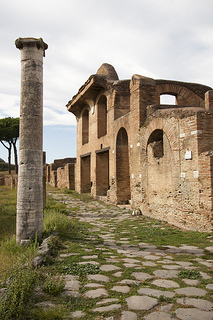Tag Archives: Latin language
How One Latin Sentence Can Teach You SO Much Posted by Brittany Britanniae on Sep 25, 2013
The foundation story of Rome can be found in Book I of Livy’s Ab Urbe Condita (From the Founding of the City) (Literally: From the City having been founded). Thus, Livy’s Ab Urbe Condita begins with the founding of Rome and progress to his modern day. Let us attempt to translate one sentence…
Popular Quotes Translated to Latin Posted by Brittany Britanniae on Sep 4, 2013
Salvete Omnes, The following quotes are done with the simplest form and are meant to be fun! While, I did not translate certain words such as “damn” and “chocolates” etc.; this was due to a stylistic approach or a lack of an ancient words. Also, it should be noted to those new to Latin that the word…
Conversation guide for the Ancient Rome Posted by leire on Oct 24, 2012
A few years ago, before going on a trip abroad, it was habitual buying a travel guide of the destination which also included some useful phrases or basic expressions to comunicate with locals. Today, these guidelines are being relegated for Internet applications or smartphones, but if you ever have the good fortune to travel to…
Syntax: locative Posted by leire on Sep 23, 2012
Locative The locative case, attributed to Indo-European language, expressed the ubi complement, with local and temporal meaning. It indicates where and when something happened. In Latin, only some of the old locative cases remain: in the singular of the first and second declensions. Its morpheme is -ae for the first declension, -i for the second…
Syntax: ablative Posted by leire on Sep 18, 2012
The overall value of the ablative is to indicate the external circumstances, the relationship between the process and the external thing. Latin ablative represents the mix of three primitive cases: the ablative, the instrumental-sociative and the locative. Latin unified the old values of these three cases into one, except the few remaining locative cases. This…
Syntax: dative Posted by leire on Sep 13, 2012
Dative is the case of the indirect object. It is used to designate the person or thing concerned by the verbal action. From this overall view we will explain the specific uses that we can find in Latin: dative of interest, dative of purpose and double dative. The dative does not only work as a …
Syntax: genitive Posted by leire on Aug 31, 2012
The genitive is, firstly, the complement of the noun (it means that a noun determines another noun), but it still mantains some uses in Latin as a verb complement. Possessive genitive It expresses possession of something and, rarely, the thing possessed: Ager patris A person’s name in genitive complementing another person’s name was the way…





